Table of Contents
- Introduction: Do Seasonings Have Gluten? The Quick Answer
- Understanding Gluten in Seasonings
- Spice Storage Hacks for Every Kitchen
- Smart Tips for Using Seasonings Safely
- The Ultimate Buying Guide for Gluten-Free Seasonings
- Frequently Asked Questions About Gluten in Seasonings
- Conclusion: Spice It Up, Gluten-Free Style
Introduction: Do Seasonings Have Gluten? The Quick Answer
Yes, some seasonings contain gluten, but not all. Pure, single-ingredient spices like cumin, paprika, and turmeric are naturally gluten-free. However, many blended seasonings (such as taco seasoning, curry powder, or garlic powder) may contain gluten due to additives like modified food starch, maltodextrin, or wheat-based fillers. This guide provides clear, actionable information to help you identify gluten in seasonings and choose safe options.
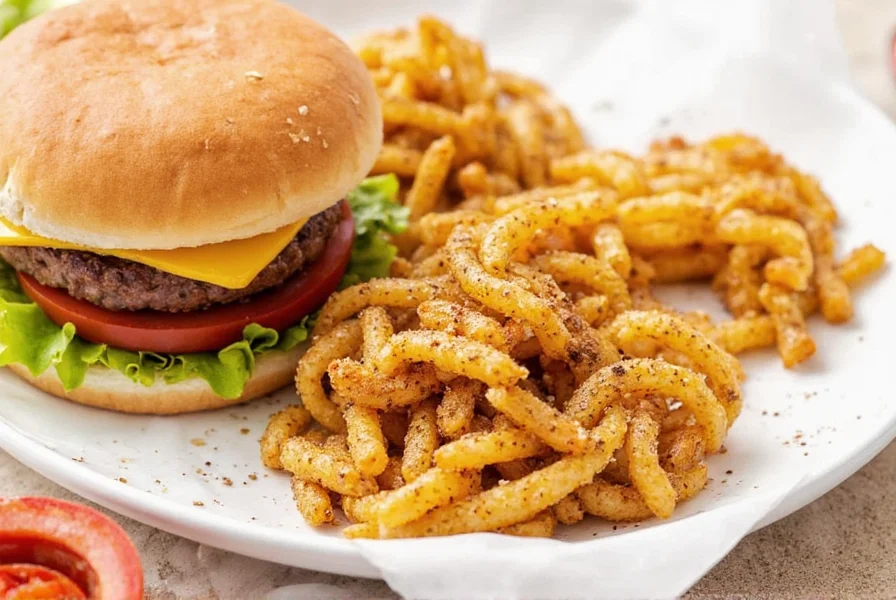
Whether you have celiac disease, gluten sensitivity, or simply want to avoid gluten, understanding which seasonings are safe is critical. The FDA requires gluten-free labeling for products meeting strict standards, but cross-contamination risks exist. Let's explore exactly where gluten hides in seasonings and how to navigate it safely.
Understanding Gluten in Seasonings
Gluten is a protein found in wheat, barley, and rye. While pure spices contain no gluten, manufacturers sometimes add gluten-containing ingredients for texture, preservation, or flavor enhancement. The key is knowing which additives to watch for and how to verify safety.
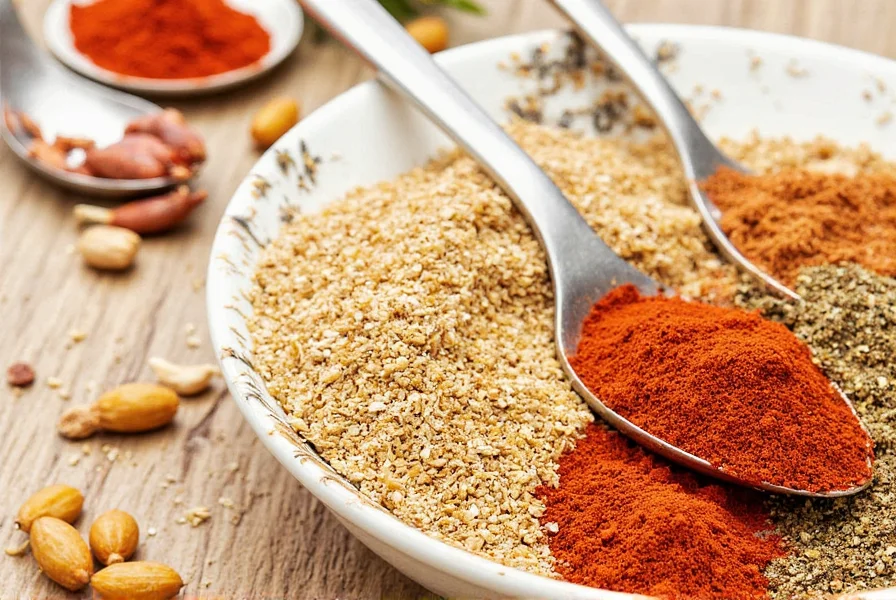
Common gluten-containing additives in seasonings include:
- Modified food starch (if derived from wheat)
- Maltodextrin (can be wheat-based)
- Wheat-based fillers (used as anti-caking agents)
- Barley malt (common in some spice blends)
- Wheat flour (in some pre-made mixes)
Always check for "gluten-free" certification labels from trusted organizations like the Gluten-Free Certification Organization (GFCO) or the Celiac Support Association. These certifications require testing to ensure less than 10ppm gluten content - the safest standard for sensitive individuals.
Spice Storage Hacks for Every Kitchen
Proper storage prevents cross-contamination and preserves freshness. Follow these science-backed tips:
1. Keep It Cool and Dark
Exposure to heat, light, and moisture degrades spice quality and increases mold risk. Store in opaque, airtight containers in a pantry away from stovetops or windows. For long-term storage, refrigerate or freeze spices in sealed containers to prevent moisture absorption.
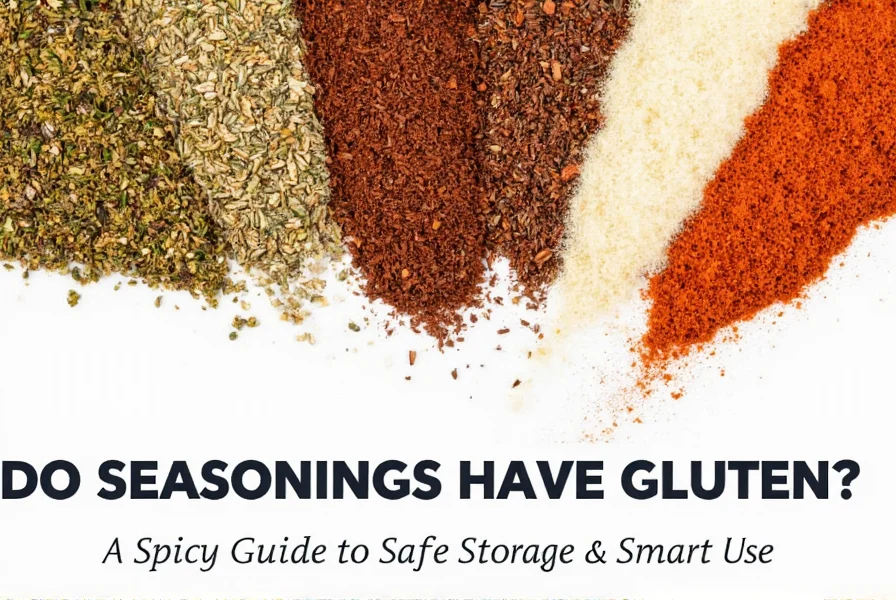
2. Use Dedicated Utensils
Never use the same spoon for gluten-containing and gluten-free spices. Cross-contamination can occur from shared utensils. Designate color-coded spoons for gluten-free use and wash thoroughly before handling different spices.
3. Label Everything Clearly
Write the spice name, purchase date, and "gluten-free" status on each container. Use waterproof labels to prevent smudging. This prevents accidental use of expired or contaminated spices.
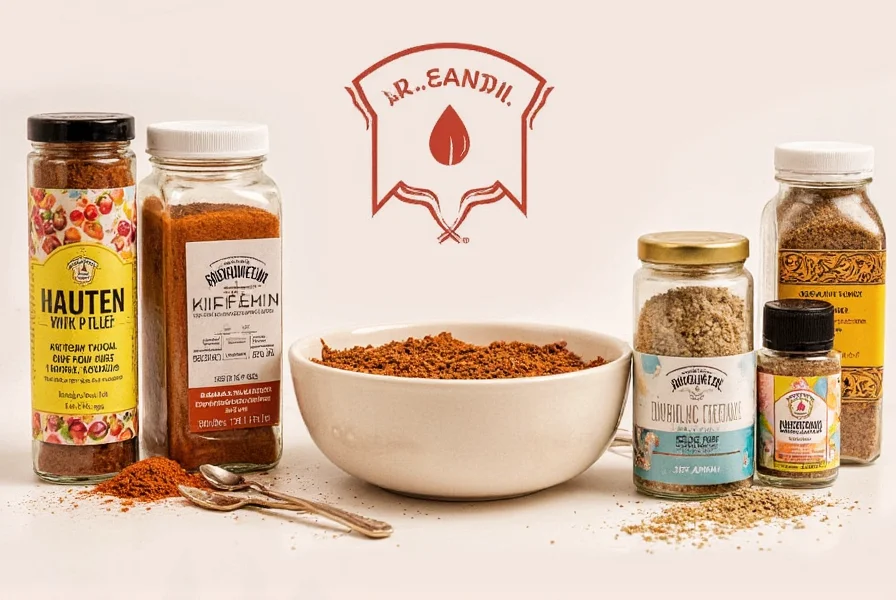
4. Avoid Moisture Exposure
Never store spices near sinks, dishwashers, or steam sources. When measuring, use dry utensils and avoid shaking directly over hot pots where steam could enter containers. For humid climates, add food-safe silica gel packets to containers.
5. Rotate Stock Regularly
Ground spices lose potency after 6-12 months; whole spices last 2-4 years. Store newer spices behind older ones and replace annually for peak flavor. Discard any spices that smell musty or lose color intensity.
Smart Tips for Using Seasonings Safely
Follow these evidence-based practices to maintain gluten-free integrity in your cooking:
1. Verify Certifications First
Look for official "gluten-free" certification logos (GFCO, NSF, or Celiac Association) on packaging. These require third-party testing and facility audits. Avoid products with only "may contain traces" warnings if you have celiac disease.
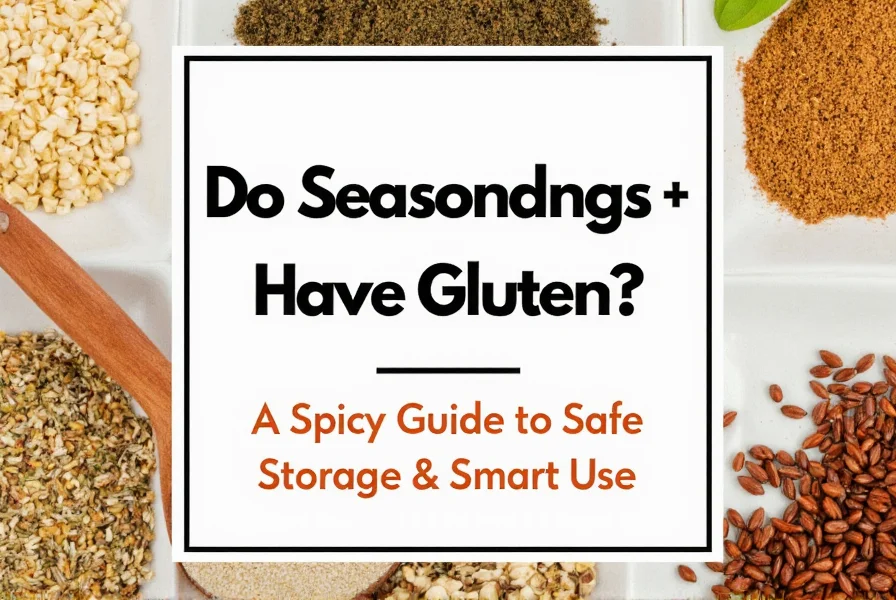
2. Choose Single-Ingredient Spices
Pure spices like cinnamon, cumin, or paprika have the lowest cross-contamination risk. Avoid "seasoning blends" unless certified gluten-free. When in doubt, grind whole spices yourself using dedicated equipment.
3. Make Your Own Blends
Create custom gluten-free blends using pure spices. For example:
- Taco seasoning: 2 tbsp chili powder + 1 tsp cumin + 1 tsp paprika + 1/2 tsp garlic powder
- Italian seasoning: 1 tbsp oregano + 1 tbsp basil + 1 tsp thyme + 1/2 tsp rosemary
4. Clean Surfaces Thoroughly
Wipe counters and utensils with vinegar solution before handling gluten-free spices. Use separate cutting boards and mixing bowls for gluten-free preparation to prevent airborne flour contamination.
5. Check Restaurant Practices
When dining out, ask if spices are stored separately from gluten-containing ingredients. Many restaurants use shared shakers for salt and pepper that may contain wheat-based anti-caking agents.
The Ultimate Buying Guide for Gluten-Free Seasonings
| Brand | Features | Advantages | Use Cases | Target Audience | Suitable Occasions |
|---|---|---|---|---|---|
| Bob's Red Mill | Organic, non-GMO, GFCO certified | Third-party tested for <10ppm gluten | Cooking, baking, seasoning | Health-conscious individuals | Daily meals, special occasions |
| Simply Organic | USDA organic, gluten-free certified | Non-GMO Project verified | Home cooking, gourmet dishes | Organic food lovers | Dinner parties, family meals |
| Kirkland Signature (Costco) | Cost-effective, GFCO certified | Best value for bulk purchases | Everyday cooking, meal prep | Budget-conscious shoppers | Weeknight dinners, snacks |
| McCormick | Wide variety, gluten-free options | Readily available in stores | General cooking, baking | Regular home cooks | All-day meals, holiday dishes |
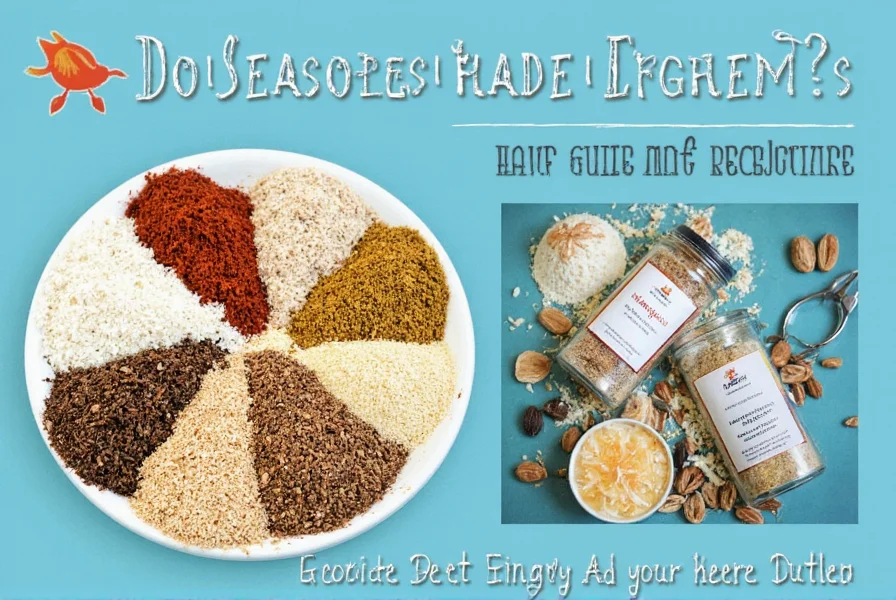
When selecting brands, prioritize those with independent gluten-free certification rather than self-declared claims. The FDA requires certified products to test below 10ppm gluten - the safest threshold for sensitive individuals. Always check the certification date on packaging as standards evolve.
Frequently Asked Questions About Gluten in Seasonings
Do all seasonings contain gluten?
No. Pure single-ingredient spices like cumin, paprika, or turmeric are naturally gluten-free. However, blended seasonings (taco seasoning, curry powder, etc.) often contain gluten-containing additives like modified food starch or wheat-based fillers. Always check for gluten-free certification on blends.
How can I tell if a seasoning has gluten?
Look for official "gluten-free" certification logos (GFCO, NSF, or Celiac Association) on packaging. Check ingredient lists for wheat, barley, rye, malt, or modified food starch without gluten-free specification. Avoid products with "may contain traces of gluten" warnings if you have celiac disease.
Which seasonings are most likely to contain gluten?
Pre-made blends like taco seasoning, curry powder, garlic powder, onion powder, and seasoned salts often contain gluten. These frequently use wheat-based anti-caking agents or maltodextrin derived from wheat. Always verify certification before purchasing blended seasonings.
Are single-ingredient spices usually gluten-free?
Yes, pure single-ingredient spices are naturally gluten-free. However, cross-contamination can occur during processing if equipment is shared with gluten-containing products. For severe sensitivities, choose spices with gluten-free certification to ensure <10ppm gluten levels.
Can spices get contaminated with gluten during storage?
Yes. Cross-contamination happens when using shared utensils, storing near gluten-containing products, or handling with contaminated hands. Prevent this by using dedicated gluten-free utensils, storing in separate containers, and cleaning surfaces thoroughly before handling.
How long do gluten-free seasonings last before they go bad?
Ground spices retain peak quality for 6-12 months; whole spices last 2-4 years. Store in airtight containers away from heat and light. Replace when spices lose aroma or color intensity. Certified gluten-free products maintain safety standards throughout their shelf life when stored properly.
Conclusion: Spice It Up, Gluten-Free Style
Understanding gluten in seasonings empowers you to cook safely without sacrificing flavor. Pure spices are naturally gluten-free, but blended seasonings require careful verification. Always look for certified gluten-free labels, store spices properly to prevent cross-contamination, and make your own blends when possible.
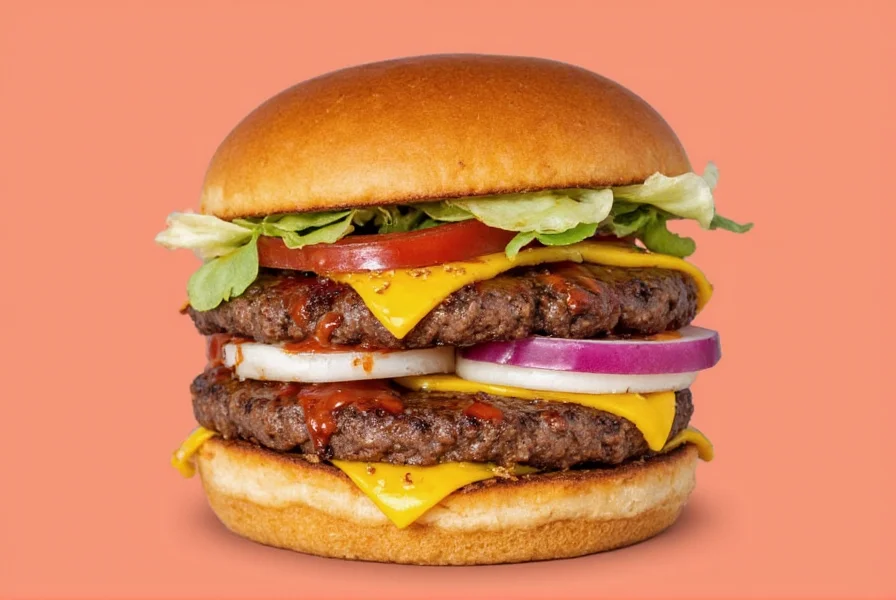
With these evidence-based practices, you can confidently enjoy flavorful meals while protecting your health. Remember: when in doubt, choose certified gluten-free products and verify with manufacturers. Your kitchen should be a safe, delicious space for everyone.

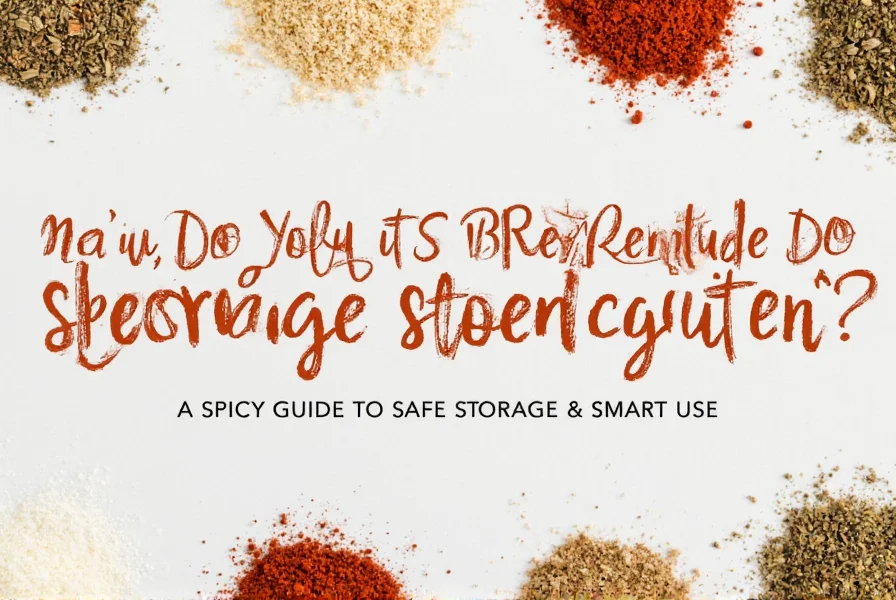









 浙公网安备
33010002000092号
浙公网安备
33010002000092号 浙B2-20120091-4
浙B2-20120091-4